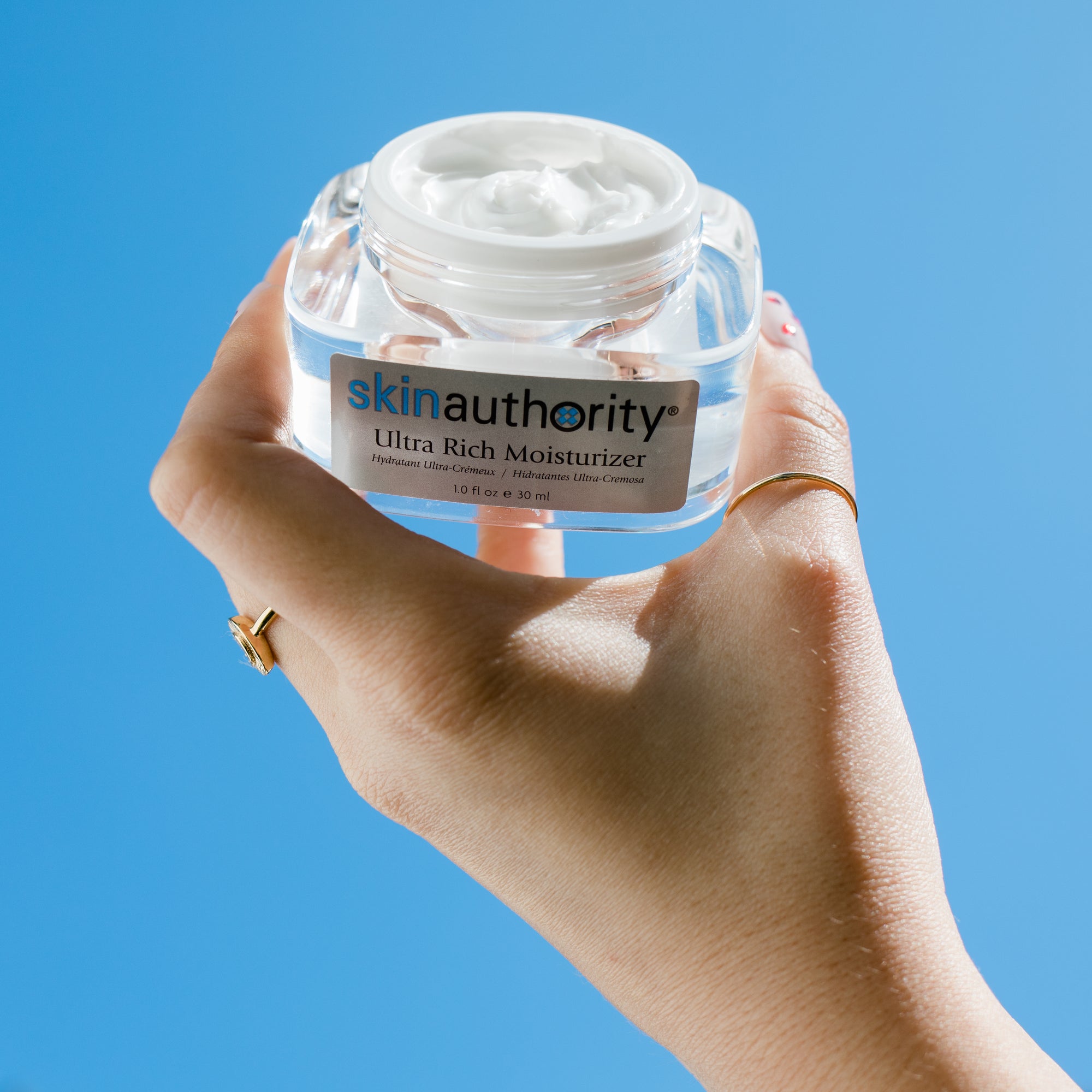4246 Insights
Your source for the latest news and information.
Moisturizer: Your Skin's Secret Weapon Against Dryness
Unlock the secret to hydrated, glowing skin! Discover why moisturizer is your ultimate weapon against dryness in our latest blog post.
Top 5 Ingredients to Look for in Your Moisturizer
Choosing the right moisturizer can significantly impact your skin's health. When browsing through various products, it's essential to look for ingredients that not only hydrate but also nourish and protect your skin. Here are the Top 5 Ingredients to Look for in Your Moisturizer:
- Hyaluronic Acid: This powerful humectant can hold up to 1,000 times its weight in water, making it ideal for plumping and hydrating the skin.
- Glycerin: Another effective humectant, glycerin helps draw moisture from the environment into the skin, leaving it soft and supple.
- Ceramides: These lipids are vital for maintaining the skin's protective barrier, locking in moisture and shielding against environmental aggressors.
- Shea Butter: Renowned for its rich, emollient properties, shea butter deeply moisturizes and provides a soothing effect on dry skin.
- Peptides: These small proteins promote collagen production, improving skin elasticity while simultaneously delivering hydration.

How Often Should You Apply Moisturizer for Maximum Hydration?
Understanding how often to apply moisturizer is key to achieving optimal skin hydration. For most skin types, it is recommended to apply moisturizer at least twice a day—once in the morning and once at night. This routine ensures that your skin retains moisture throughout the day, especially when exposed to environmental factors such as sun, wind, and dry air. For those with particularly dry or sensitive skin, using a moisturizer after every wash or exposure to harsher elements may be beneficial to prevent dryness and irritation.
Additionally, consider applying moisturizer immediately after cleansing your face or taking a shower. This is crucial because damp skin helps lock in moisture, enhancing the effectiveness of your moisturizer. Keep in mind that the type of moisturizer you choose also plays a role in hydration frequency; heavier creams can be applied less often, while lightweight lotions may require more frequent application to maintain skin hydration. Monitor your skin's needs and adjust your routine accordingly to prevent over-moisturizing, which can lead to clogged pores.
The Science Behind Moisturizers: How They Combat Skin Dryness
Moisturizers play a crucial role in combating skin dryness by providing hydration and creating a protective barrier on the skin's surface. When applied, they work to lock in moisture and prevent water loss, which is essential for maintaining skin elasticity and softness. Many moisturizers contain humectants like glycerin and hyaluronic acid that draw water from the air into the skin, while occlusive agents like petrolatum and dimethicone seal this moisture in. Together, these ingredients ensure that the skin remains hydrated and resilient, helping to reduce the appearance of fine lines and a rough texture.
Additionally, the science behind moisturizers involves understanding the skin barrier, which can be compromised by environmental factors such as cold weather or harsh cleansers. A well-formulated moisturizer not only hydrates the skin but also enhances the barrier function by replenishing lipids that may be depleted. This is why choosing the right moisturizer for your skin type is paramount. For instance, individuals with oily skin might benefit from lightweight, non-comedogenic formulas, while those with extremely dry skin should opt for richer, cream-based products that provide deep hydration and nourishment.